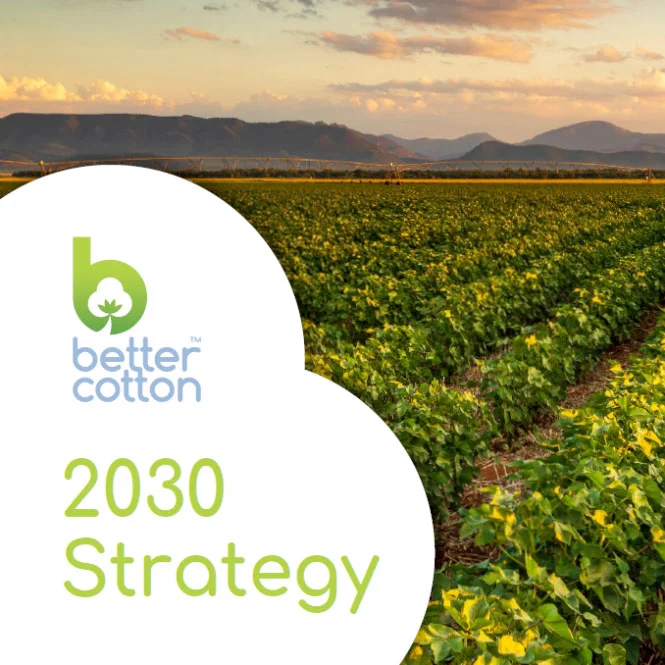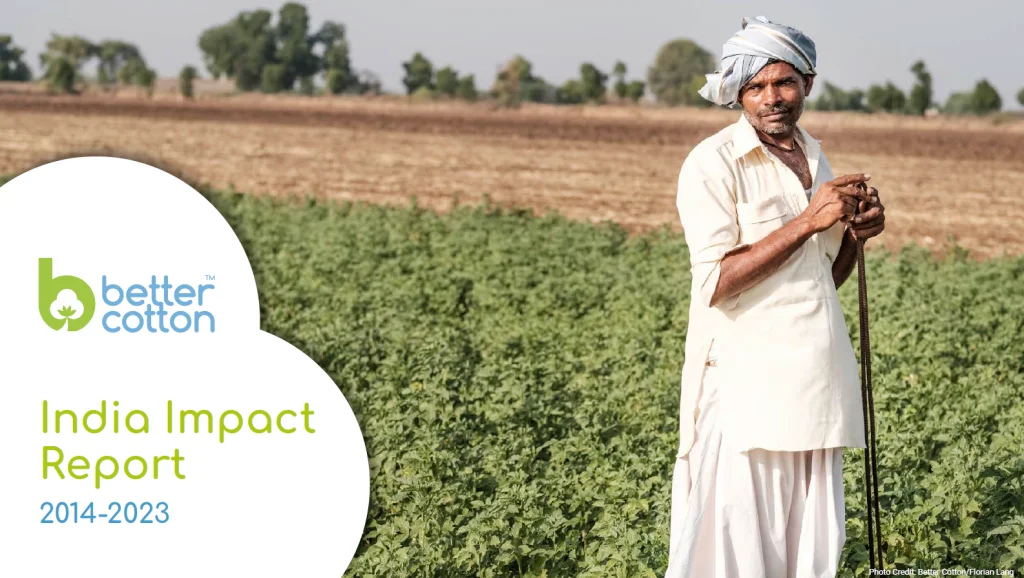- Who we are
- What we do
In just over 10 years we have become the world’s largest cotton sustainability programme. Our mission: to help cotton communities survive and thrive, while protecting and restoring the environment.
- Where we grow
Better Cotton is grown in 22 countries around the world and accounts for 22% of global cotton production. In the 2022-23 cotton season, 2.13 million licensed Better Cotton Farmers grew 5.47 million tonnes of Better Cotton.
- Our impact
- Membership
Today Better Cotton has more than 2,700 members, reflecting the breadth and diversity of the industry. Members of a global community that understands the mutual benefits of sustainable cotton farming. The moment you join, you become part of this too.
- Associate Membership
- Civil Society Membership
- Producer Organisation Membership
- Retailer and Brand Membership
- Supplier and Manufacturer Membership
- Find Members
- Member Monitoring
- Better Cotton Platform
- myBetterCotton
- Resources – Better Cotton Conference 2022
- Complaints
- Whistleblowing
- Safeguarding
- Get Involved in the Better Cotton Programme
- Thank you for contacting us
- Better Cotton’s Data Privacy Policy
- Log in
- Members’ Area
- Request for Proposals
- Better Cotton Cookie Policy
- Web Reference
- Measuring Cotton Consumption
- How to Implement the Chain of Custody Standard
- Resources – Better Cotton Conference 2023
- Certification Bodies Old
- Latest
- Sourcing
- Latest
The founding premise of Better Cotton is that a healthy sustainable future for cotton and the people that farm it is in the interests of everyone connected with it.
Let us help you find what you’re looking for
Results for {phrase} ({results_count} of {results_count_total})Displaying {results_count} results of {results_count_total}
This International Women’s Day 2022, we are placing the spotlight on the inspiring women who are using their expertise and passion to drive positive change in cotton farming.
Following this year’s IWD theme, this feature focuses on our aim to #breakthebias of agricultural extension services prioritising the needs of men and dominant groups over women and disadvantaged groups. One way we are progressing this aim is by actively supporting more women into field staff roles, where they can inspire cotton communities to adopt more sustainable practices.
We spoke with representatives from three Better Cotton Implementing Partners: Anjali Thakur, Ambuja Cement Foundation in India; Gülan Oflaz, GAP UNDP in Turkey; and Narjis Fatima, WWF-Pakistan to learn more about their work, how they are supporting women in cotton, and the changes they are seeing on the ground. These three women joined our Implementing Partner Meeting in January 2022 during a spotlight panel. The below interviews and video clips are extracts from that event.
We believe that a transformed, sustainable cotton industry is one where all participants have equal opportunities to thrive. In our 2030 Strategy we recognise our opportunity to tackle systemic inequalities and unequal gender relations to promote shared power, control of resources, decision-making, and support for women’s empowerment. We are committed to convening, inspiring, and influencing the wider industry to also take transformative action.
Our 2030 women’s empowerment impact target is focused on creating more opportunities for women like Anjali, Gülan, and Narjis. In collaboration with our partners, we are committed to increasing the proportion of women field staff, such as Producer Unit Managers and Field Facilitators, in our programmes. Field staff of all gender identities are critical to our mission. They are the people that make Better Cotton real for participating cotton communities. They travel long distances and work in challenging conditions to tackle difficult issues and inspire positive changes for the environment and local communities.
Women field staff are often better placed to meet the particular needs of women in cotton. By setting a target to increase the proportion of women field staff who make Better Cotton a reality, and developing new initiatives to meet the particular needs of these women, we believe that our programmes will become more impactful and more inclusive.
In this year’s Better Cotton Council Election, we encourage women and those from underrepresented communities to apply for a leadership position on the Better Cotton Council. Better Cotton Members have until 15 March to submit their application. Learn more.


